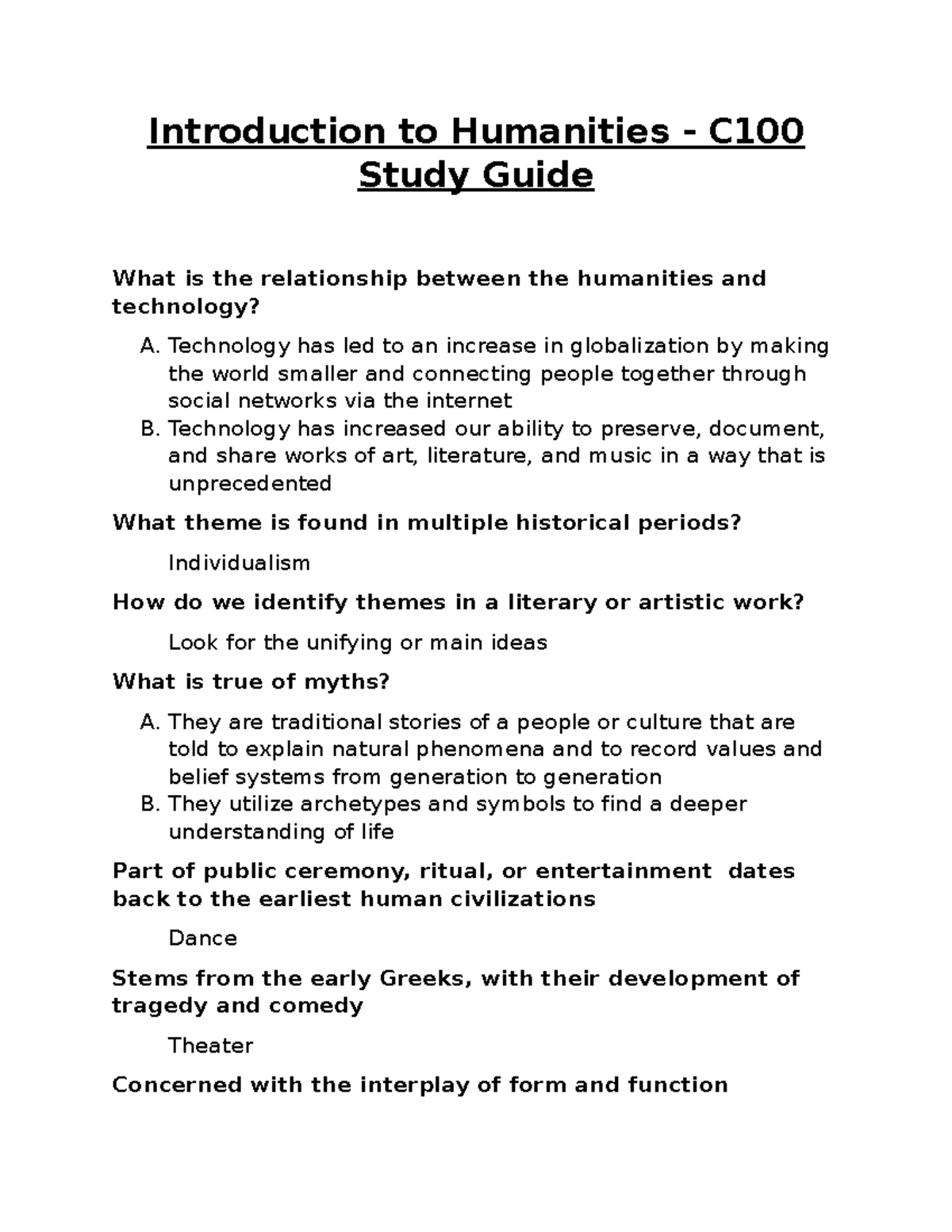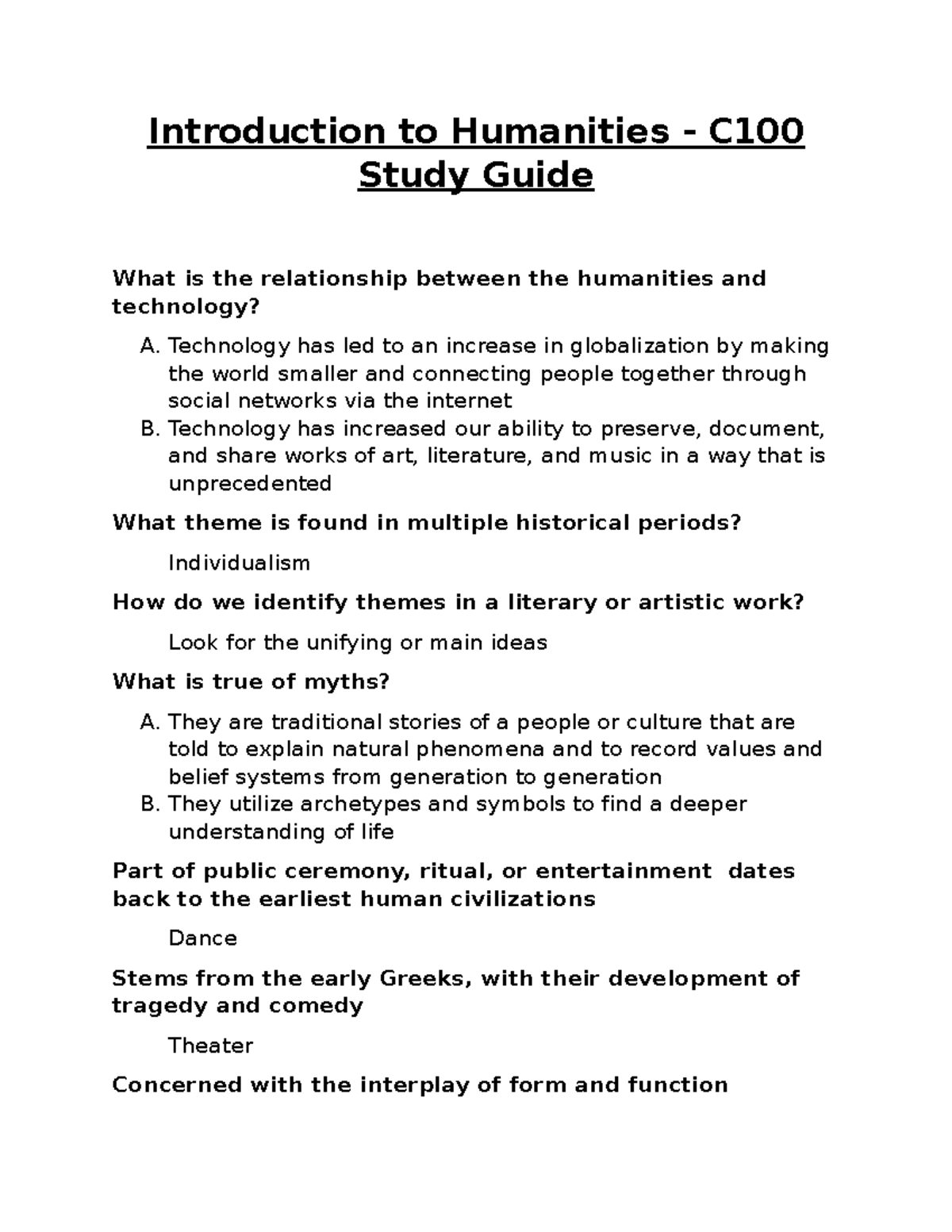Introductory humanities courses are vital for fostering an appreciation of the arts and humanities among first-year students, especially in the current climate of declining enrollment in these essential fields. With a fresh perspective spearheaded by Dean Sean Kelly, Harvard is set to introduce nine innovative courses designed not only to engage students but also to reignite their passion for literature and the humanities. This initiative stands in stark contrast to the trends observed, where students often shift away from humanities studies after entering college. By tailoring the curriculum to resonate with the complexities of human experience, these courses can help students explore deep philosophical questions and the transformative power of artistic expressions. As part of this effort, Harvard’s commitment emphasizes the necessity of instilling a long-lasting appreciation for literature and critical thinking, ensuring that the arts remain an integral part of higher education.
The realm of introductory liberal arts courses plays a crucial role in shaping the educational journey of new students, particularly in the context of the declining interest in these topics within universities. By reimagining the way we present the humanities, institutions like Harvard are launching fresh courses aimed at connecting with students right from their first year. This shift not only addresses the issue of diminishing enrollment but also highlights the essential value of cultural studies and literary analysis in understanding the human condition. Engaging students through innovative and relevant content can significantly enhance their academic experience, drawing them into the world of ideas, creativity, and critical inquiry. As we rethink our approach to humanities education, the focus shifts to creating impactful learning environments that celebrate the importance of arts and literature in shaping thoughtful, well-rounded individuals.
Engaging First-Year Students through the Arts and Humanities
In an era where engagement in the arts and humanities is waning among new students, educational institutions like Harvard are taking concerted steps to reverse this trend. The innovative courses being introduced are designed specifically to captivate first-year students and draw them into the rich tapestry of arts and humanities. By focusing on relatable and culturally relevant themes, these courses aim to foster a genuine interest in the subject matter, encouraging students to explore not only the academic aspects but also the personal and emotional connections that the arts can evoke.
Furthermore, the importance of these introductory humanities courses cannot be overstated. They serve as gateways for students to discover their passions and identity through artistic expression and critical thought. By engaging with literature, philosophy, and the history of art, students can cultivate an appreciation for the complex narratives that shape human experience. This approach not only aims to enhance enrollment but also to instill a lifelong love and understanding of the humanities in first-year students.
The Harvard Humanities Initiative: A Response to Declining Enrollment
The Harvard Humanities Initiative reflects a proactive approach to combat the alarming decline in enrollment rates within the humanities disciplines. By introducing nine new courses designed to engage students on fundamental questions about humanity and existence, the initiative aims to rekindle curiosity and interest among first-year students. This shift in focus emphasizes the importance of literature and artistic exploration, offering students new ways to connect with the material and see its relevance in today’s society.
As Dean Sean Kelly has pointed out, the challenge lies not just in making the courses more appealing, but also in rethinking the way these subjects are presented. The Harvard initiative seeks to dismantle the historical debates that have clouded the humanities and, instead, highlight their inherent value. This recommended approach ensures that students do not just view humanities as academic requirements but as vital components of their educational journey that enhance their understanding of the world.
The Importance of Literature in Introductory Humanities Courses
Literature plays a foundational role in the introductory humanities courses at Harvard, serving as a mirror to human experience and a vehicle for deeper understanding. Through a diverse selection of texts, students are encouraged to engage with narratives that challenge their perspectives and prompt critical analysis. These literary works not only enhance students’ reading and writing skills but also foster empathy and insight into the complexities of the human condition.
In the context of introductory courses, literature is more than just a subject of study; it is a transformative mechanism. By exploring various genres and authors, students develop a nuanced understanding of cultural contexts and thematic concerns that transcend time and place. This exploration not only enriches their academic experience but also equips them with the skills to navigate an increasingly complex world.
Rethinking Traditional Approaches to Humanities Education
The traditional methodologies of teaching humanities have faced scrutiny for their inability to engage modern students effectively. The so-called ‘Canon Wars’ of the past highlighted the debates surrounding the selection of texts deemed essential for study, often alienating many potential students. As Harvard embarks on this new initiative, there’s a concerted effort to move beyond these controversies and create an inclusive curriculum that resonates with the diverse experiences of today’s learners.
By focusing on contemporary themes and accessible texts, professors aim to make humanities education relevant and engaging. Rather than adhering to outdated notions of ‘great works,’ the new courses invite students to question established narratives and explore a range of voices and experiences. This shift not only enriches the learning landscape for first-year students but also reflects a broader understanding of the evolving nature of the arts and humanities.
Building a Strong Foundation in the Humanities
The newly designed introductory courses are intended to offer a strong foundational blueprint for students interested in the humanities. Courses such as ‘The Human Sciences: Fundamentals and Basic Concepts’ provide essential overviews of key concepts that define the field. This framework allows students to grasp fundamental ideas and methodologies that will inform their further studies and career paths, highlighting the importance of interdisciplinary connections.
In addition to theoretical foundations, the coursework emphasizes practical engagement with core humanities topics. By exploring metaphor, language, and philosophical questions, students gain vital tools for analyzing and interpreting various forms of artistic expression. This comprehensive approach not only cultivates critical thinking but also prepares them for an array of disciplines and professions beyond their initial studies.
Fostering Creativity through Literature and Storytelling
In an exciting intersection of literature and creative writing, the introductory course ‘Reading for Fiction Writers’ emphasizes the vital relationship between reading and writing. The curriculum is designed to inspire first-year students to craft their narratives while also developing their ability to critically analyze texts. By immersing themselves in works by renowned authors, students learn to appreciate how literary techniques can influence their own writing styles.
This dual focus not only enhances their creative skills but also deepens their understanding of literary craft. As students engage with diverse narratives, they begin to see the interconnectedness of storytelling across cultures and time periods. This approach fosters a richer understanding of their own identities as writers and readers, equipping them with the ability to narrate their stories meaningfully.
The Cultural Relevance of the Arts in Today’s Society
Understanding the cultural relevance of the arts and humanities has never been more crucial in a rapidly changing global landscape. The new courses being introduced at Harvard aim to explore significant contemporary issues through the lens of artistic expression, allowing students to connect their learning with real-world contexts. This relevance invites students to investigate critical questions about identity, migration, and societal change through various media, including film, literature, and visual arts.
As students explore these topics through the humanities, they gain insights into the human experience that extend beyond the classroom. They learn to appreciate the inherent value of the arts and humanities in fostering critical thought, creativity, and empathy, preparing them to tackle complex social issues and contribute positively to society. This holistic approach helps students recognize and embrace their roles as informed and engaged citizens.
Creating an Inclusive Culture around Humanities Education
At the heart of the introductory course initiative at Harvard lies the desire to create an inclusive culture surrounding humanities education. Dean Kelly emphasizes the need to highlight not only the instrumental value of these disciplines but also their essential significance to the human experience. By making courses accessible and relevant, the initiative aspires to encourage students from all backgrounds to engage in the arts and humanities and develop a deeper appreciation for cultural discourse.
Through collaborative teaching methods and a diverse curriculum, these courses aim to foster a supportive environment where students can safely explore their ideas and perspectives. This inclusive approach not only enriches the classroom experience but also promotes a sense of community that extends beyond academic walls. By valuing every student’s contribution, the initiative sets the stage for transformative learning experiences that can shape students’ lives for the better.
Promoting Lifelong Engagement with the Arts and Humanities
The ultimate goal of the introductory humanities courses at Harvard extends beyond mere enrollment metrics. Dean Kelly envisions these classes as fostering lifelong engagement with the arts and humanities, shaping students’ perspectives and values. By instilling a sense of appreciation for literature, philosophy, and the arts, students can carry these insights with them throughout their personal and professional journeys.
As students gain a deeper understanding of the universality of human experience through the study of arts and humanities, they become more empathetic and conscientious individuals. This transformative education encourages critical thinking and creative problem-solving, equipping them with the skills necessary to navigate an increasingly complex world. Ultimately, the initiative seeks to nurture a new generation of thinkers and creators who view engagement with the humanities as essential to their lives and work.
Frequently Asked Questions
What are the new introductory humanities courses being offered at Harvard?
Harvard is launching nine new introductory humanities courses this fall as part of an initiative to engage first-year students in the arts and humanities. These courses cover a range of topics, including ‘Introduction to the Medical and Health Humanities’ and ‘Bob Dylan the Classic,’ aiming to rejuvenate interest in humanities subjects among incoming students.
How do introductory humanities courses at Harvard address declining enrollment?
The introductory humanities courses at Harvard are designed to combat declining enrollment by emphasizing engaging and relevant topics that resonate with first-year students. The initiative, led by Dean Sean Kelly, focuses on innovative content that encourages students to explore the intrinsic value of literature and the arts.
What is the importance of literature in introductory humanities courses?
Literature plays a crucial role in introductory humanities courses, as it allows students to delve into profound themes of human experience. Courses at Harvard aim to foster a love for reading great works, encouraging students to appreciate their cultural significance and develop critical thinking skills that are essential in understanding the human condition.
How are Harvard’s introductory humanities courses reshaping student engagement?
Harvard’s restructured introductory humanities courses are reshaping student engagement by shifting focus from traditional texts to more contemporary and diverse subject matter that appeals to first-year students. This innovative approach aims to create a more inclusive and stimulating environment for exploring arts and humanities.
What role do introductory humanities courses play in a student’s academic journey at Harvard?
Introductory humanities courses at Harvard serve as foundational experiences that help students navigate their academic interests. By exploring various topics like philosophy and creative writing, these courses enable students to identify their passions and determine their paths within the humanities, ultimately enriching their overall educational experience.
Why is engaging first-year students in arts and humanities essential?
Engaging first-year students in arts and humanities is essential because it fosters a greater appreciation for cultural and intellectual exploration. It helps counteract the trend of declining enrollment in these fields and ensures that students recognize the relevance of literature, art, and critical thinking in their lives and future careers.
How do introductory humanities courses reflect modern cultural debates?
Introductory humanities courses at Harvard reflect modern cultural debates by encouraging discussions about the significance of literary texts and the evolving canon in literature and the arts. This approach helps students understand the complexities surrounding what is deemed ‘great’ and promotes critical discourse on diverse perspectives within the humanities.
What can students expect to learn from these new introductory humanities courses?
Students can expect to learn essential concepts in humanities through thought-provoking coursework that covers a variety of topics—from literature and film to philosophical questions about humanity. These courses are designed to challenge students’ thinking and enhance their ability to critically engage with the arts and humanities.
| Course Title | Instructor | Focus Area |
|---|---|---|
| Introduction to the Medical and Health Humanities | Karen Thornber | Exploration of health and medicine through humanities. |
| Bob Dylan the Classic | Richard F. Thomas | Analysis of Dylan’s contributions to music and literature. |
| Culture in Context | Lauren Kaminsky | Study of cultural dynamics and their contextual significance. |
| Migration and Border Crossing in Film and Photography | Raquel Vega-Durán | Examination of cultural narratives in visual media. |
| Humanity, Technology, and Creation | Moira Weigel | Investigating the intersection of humans and technology. |
| Language | Kathryn Davidson | Analyzing linguistic structures and their implications. |
| Translation and the Craft of Reading Carefully: A World Literature Introduction | Spencer Lee-Lenfield | Focus on the art of reading and translating texts across cultures. |
| The Human Sciences: Fundamentals and Basic Concepts | John T. Hamilton | Overview of essential humanities methodologies and concepts. |
| HUM 9: Reading for Fiction Writers | Laura van den Berg & Neel Mukherjee | Integrating critical reading with creative writing skills. |
Summary
Introductory humanities courses play a vital role in shaping students’ understanding of human experiences and the cultural frameworks that define our world. In an innovative move by Harvard’s Dean Sean Kelly, the introduction of nine new courses is designed to actively engage first-year students and counteract declining enrollment trends in these fields. By emphasizing the intrinsic value of the humanities—beyond merely academic pursuits—these courses invite students to explore profound questions about existence, culture, and creativity. The curriculum integrates various modes of inquiry and analysis, ultimately aiming to inspire a love for learning and a deeper appreciation of the arts and humanities as essential to the human experience.



